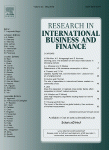The first article published by FOM academic Samreen Ashraf has become the ‘Most Read’ article on Research Gate compared to those published by other authors in her department.
The paper focuses on consumer trust in Islamic banks. The authors differentiate between the definitions of trust and confidence in the paper. Specifically, it addressed the questions: to what extent are trust and confidence active influencers in the decision-making process, are they differentiated or are they one of the same? Also how does the Pakistani collective cultural context further complicate the application of these concepts? These questions were addressed by using qualitative methods.
This study provided further insight into consumer behaviour within financial services and specifically Islamic banking and has contributed to the theoretical understanding of the concepts of trust and confidence.
For those interested in reading the paper the full reference is: Ashraf, S., Robson, J. and Sekhon, Y., 2015. Consumer trust and confidence in the compliance of Islamic banks. Journal of Financial Services Marketing, 20(2), pp.133-144.
Alternatively, the paper can be accessed via Research Gate!


 Determinants of bank profitability in transition countries: What matters most? – Download and read this article while you can!!
Determinants of bank profitability in transition countries: What matters most? – Download and read this article while you can!! A year in the Life of an Early Career Researcher
A year in the Life of an Early Career Researcher Perspectives from an Early Career Researcher (ECR): Tips for Conference Engagement
Perspectives from an Early Career Researcher (ECR): Tips for Conference Engagement










 Expand Your Impact: Collaboration and Networking Workshops for Researchers
Expand Your Impact: Collaboration and Networking Workshops for Researchers Visiting Prof. Sujan Marahatta presenting at BU
Visiting Prof. Sujan Marahatta presenting at BU 3C Event: Research Culture, Community & Can you Guess Who? Thursday 26 March 1-2pm
3C Event: Research Culture, Community & Can you Guess Who? Thursday 26 March 1-2pm UKCGE Recognised Research Supervision Programme: Deadline Approaching
UKCGE Recognised Research Supervision Programme: Deadline Approaching ECR Funding Open Call: Research Culture & Community Grant – Apply now
ECR Funding Open Call: Research Culture & Community Grant – Apply now ECR Funding Open Call: Research Culture & Community Grant – Application Deadline Friday 12 December
ECR Funding Open Call: Research Culture & Community Grant – Application Deadline Friday 12 December MSCA Postdoctoral Fellowships 2025 Call
MSCA Postdoctoral Fellowships 2025 Call ERC Advanced Grant 2025 Webinar
ERC Advanced Grant 2025 Webinar Update on UKRO services
Update on UKRO services European research project exploring use of ‘virtual twins’ to better manage metabolic associated fatty liver disease
European research project exploring use of ‘virtual twins’ to better manage metabolic associated fatty liver disease